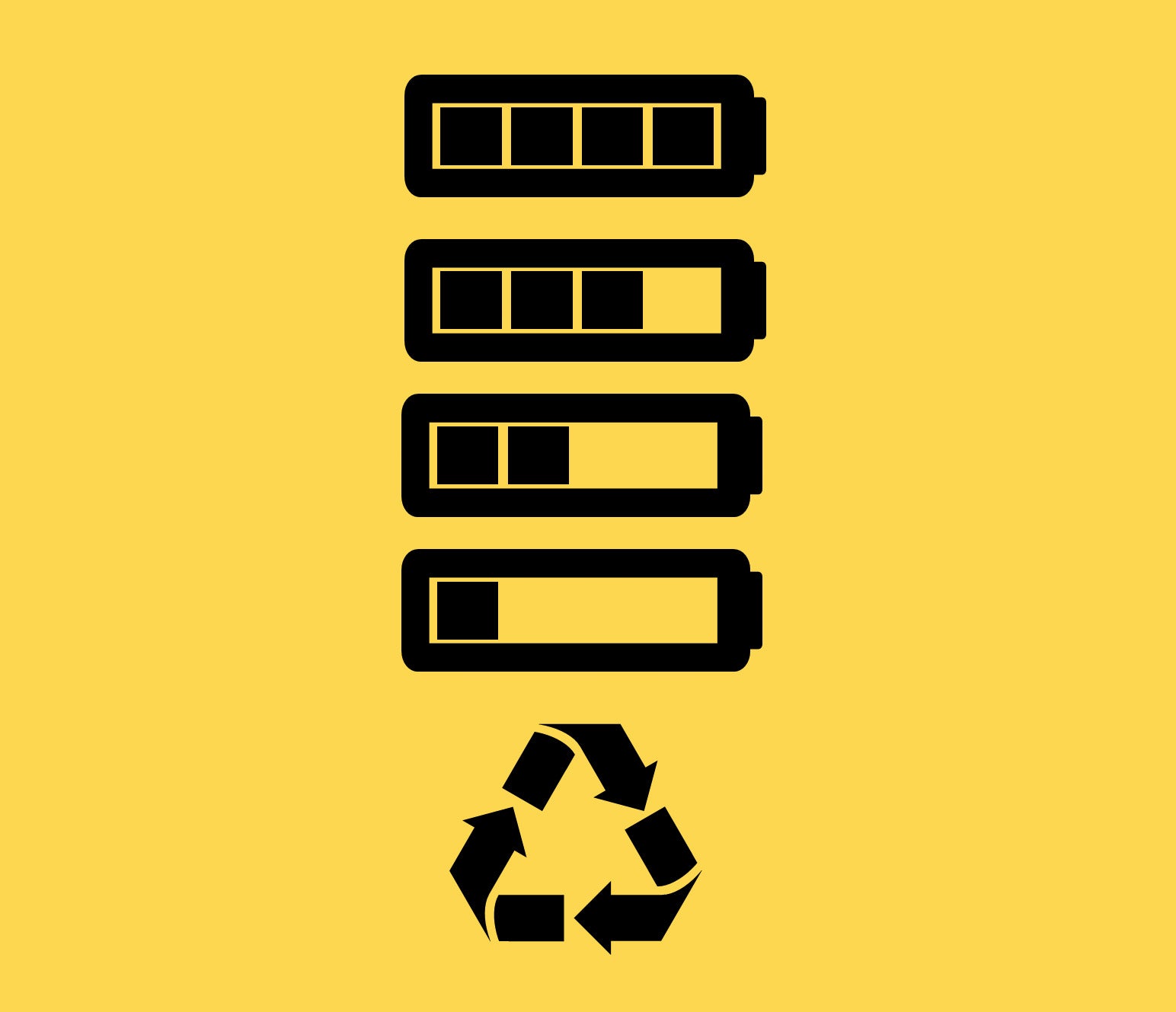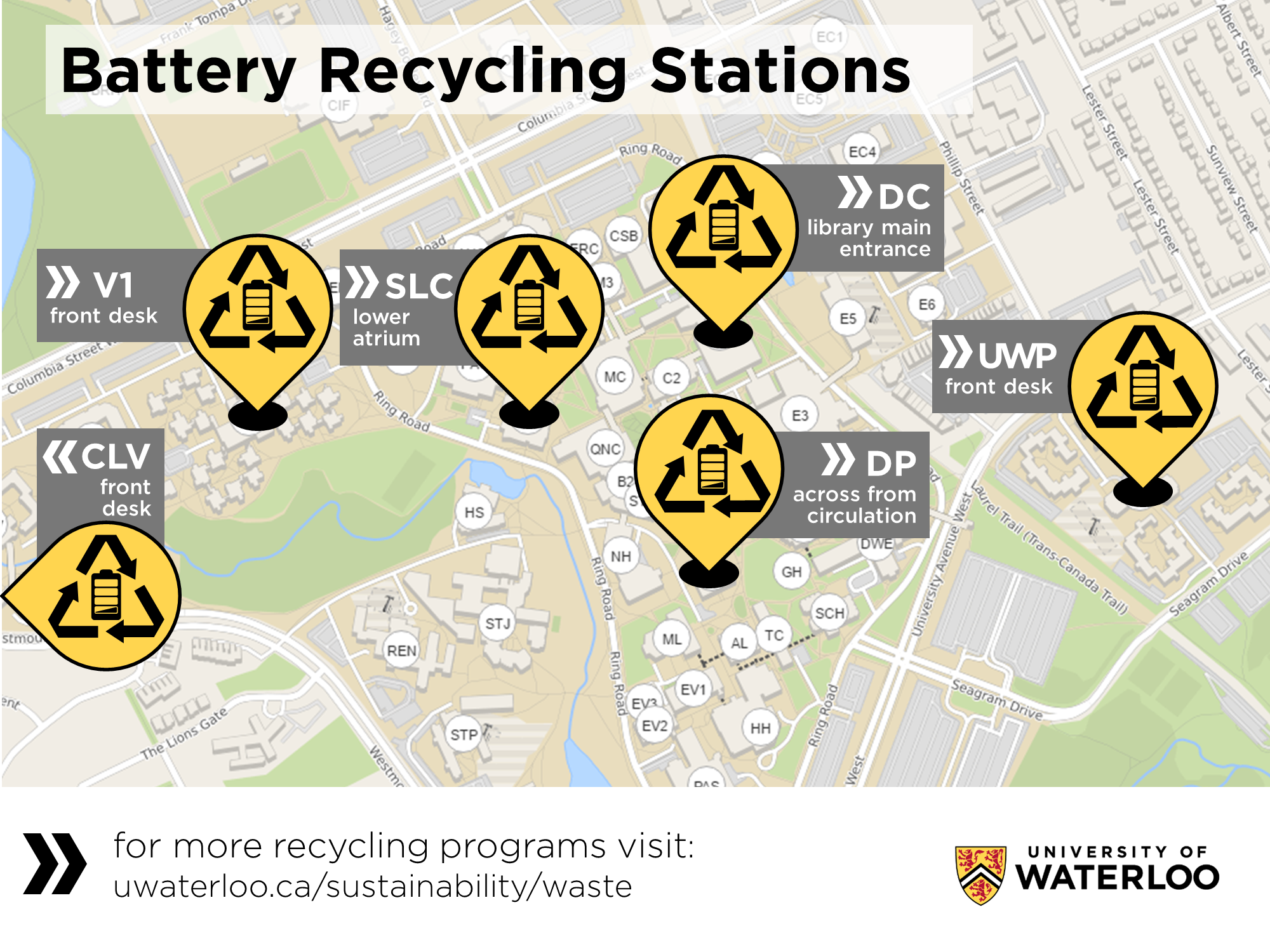Lack of knowledge. Inconvenience. Uncertainty. These barriers can make battery recycling seem difficult for people to participate in. Often times, when individuals commit to sustainable actions we underestimate the collective power that this has on protecting the environment, even if it’s something as small as recycling batteries. As we are exposed to hazards and chemicals every day, we need to become more diligent by taking care of the products we consume - especially at the end-of-life stage.
So why should we recycle our batteries?

The progressive steps that governments, people, and organizations have made to ensure our hazardous products are disposed of properly ensure that we can foster future generations' ability to take part in meaningful sustainable actions. There really is no point in going back now!
Of course, there are major benefits. First, recycling your batteries reduces the potential of contaminating our groundwater sources1. Second, if batteries are recycled it helps to reduce the cost and energy use involved in manufacturing batteries and other materials2. Finally, you reduce the amount of hazardous material that ends up in the landfill3 (yes that's right batteries are considered hazardous waste!). Seeing any pattern yet? Individually, if we all do our part in recycling batteries we can reduce the amount that end up in our landfill.
Let’s Take a Look at the Specifics
Here are some stats to help you understand the important role that we can play when we divert batteries from the landfill:
1. In 2011, 43% of households with dead batteries dropped off their batteries at a drop-off centre or depot, while 32% of households still put them in the garbage4.
2. Batteries are comprised up of 25% steel, which can be 100% recovered for reuse5.
3. 60% of alkaline batteries are made up of manganese, potassium and zinc, which can actually be reused in fertilizer as a micronutrient6.
Over the years, people have begun to participate in battery recycling more often! For the first half of 2015, Call2Recyle reports that about 2.6 million kilograms of batteries (roughly the size of 433 fully grown elephants) were diverted from landfills in Canada and the United States. This progress is substantial especially when considering that at one point in time battery recycling didn’t exist.
Where to start?
Start by recycling! Waterloo has launched six new battery drop-off locations across campus, where you can bring batteries from home, school, or the office. These are probably within a short walk of your office, class, or residence. Waterloo’s Safety Office collects the batteries and ships them to a company that will recycle the chemicals and metals inside.

If you have a big stack of batteries that you’ve collected in your office or residence, you can contact the Safety Office (x35755) to come pick them up. You can also check out Call2Recycle to find a drop off location wherever you live.
You could also consider purchasing rechargeable batteries, as the overall environmental impact is larger with disposable batteries7, to reduce the number of batteries destined for the landfill. And, if you’re really ambitious, try thinking about purchasing fewer toys and gadgets that require disposable batteries to begin with!
Don't forget to follow us on Twitter @WATgreen & like us on Facebook!
1. Malavika, C.R. (2004). "Environmental effects associated with battery disposal." Frost & Sullivan. Available online at: www.frost.com/sublib/display-market-insight-top.do?id=20759887. Accessed 19 January 2017.
2. Ibid
3. everyday-green.com. "Battery Statistics." Available online at: http://everyday-green.com/html/battery_statistics.html. Accessed 19 January, 2017.
4. Statistics Canada. (2015). "Canadian environment week... by the numbers". Available online at: http://www.statcan.gc.ca/eng/dai/smr08/2015/smr08_200_2015. Accessed 19 January, 2017.
5. Higgs, Matt. (2015). "Too many batteries end up in landfills." Peterborough Examiner. Available online at: http://www.thepeterboroughexaminer.com/2015/02/03/too-many-batteries-end-up-in-landfills. Accessed 19 January 2017.
6. Ibid.
7. Parsons, David. (2007). "The environmental impact of disposable versus rechargeable batteries for consumer use." International Journal of Life Cycle Assessment, vol. 12, no. 197. Accessed 19 January, 2017.